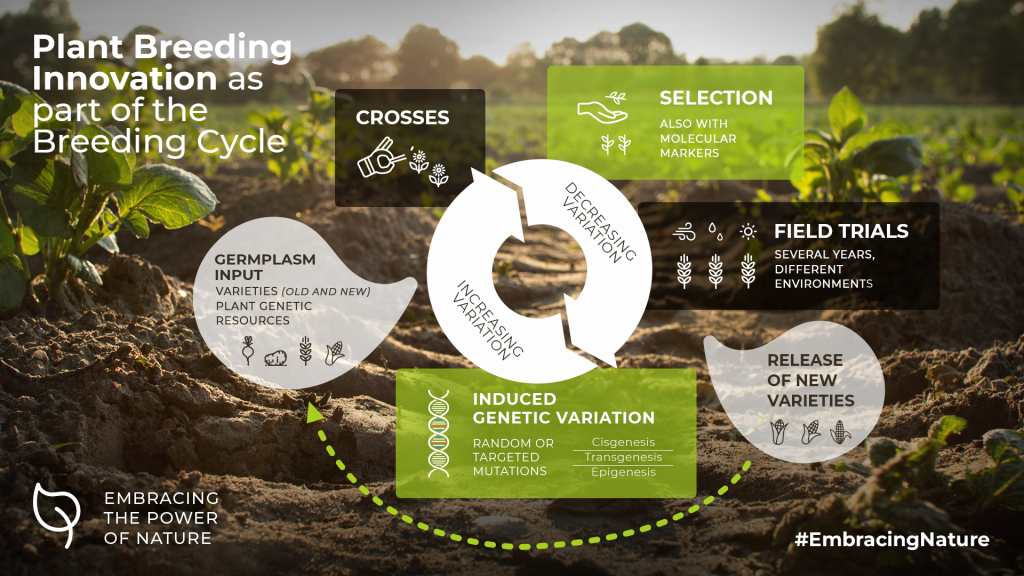South Africa’s agricultural innovation landscape is set for a significant boost as new regulations surrounding Plant Breeders’ Rights (PBR) come into effect. The newly published Plant Breeders’ Rights Act No. 12 of 2018, introduced by the Department of Agriculture, officially replaces the decades-old Act No. 15 of 1976, bringing national regulations in line with international standards and introducing reforms aimed at supporting both commercial and subsistence farmers.
Expanded Protection and Greater Innovation Incentives
The updated Act widens the scope of plants eligible for protection under PBR, now covering all genera and species. It also extends the period of protection from 25 to 30 years for crops like fruit trees, vines, sugar cane, and potatoes, and from 20 to 25 years for other crop types. These changes are designed to incentivise investment in seed innovation, encouraging more companies to introduce advanced plant varieties to the South African market.
According to Dr Miekie Human, science and policy manager at the South African National Seed Organisation (SANSOR), the increased protection will help secure long-term returns for breeders, promoting greater research and development in the seed sector.
“We won’t have innovation if PBRs are not protected,” said Dr Human. “The new Act ensures that investments are protected for longer, which will encourage more companies to invest in South Africa.”
Benefits for Smallholders and Subsistence Farmers
The new legislation also introduces provisions that make seed saving and trade more accessible for subsistence and small-scale farmers. Subsistence farmers, for example, are now legally allowed to retain seed from previous harvests and trade it with other subsistence farmers, a practice that was previously restricted.
For small-scale commercial farmers, the Act allows seed to be saved for replanting, but not traded. Larger-scale farmers — from mid-sized to mega operations — may retain seed, but must report retained quantities to the respective seed companies, especially if usage surpasses a specified threshold.
These changes aim to balance the rights of breeders with the needs of food security and local agricultural sustainability, providing more inclusive support to South Africa’s diverse farming community.
Fair Remuneration and Industry Support
A key feature of the new Act is the remuneration clause, which allows seed companies to request compensation for retained seed. This is interpreted through SACTA’s End Point Royalty system, where a portion of statutory levies is redirected to breeders to make up for income lost due to seed retention.
Andrew Bennett, CEO of the South African Cultivar and Technology Agency (SACTA), emphasised how this system has already shown results in crops like wheat and soya beans, which are commonly retained for replanting.
“Since the introduction of these levies, we’ve seen over 80 new soya bean and 50 new wheat varieties enter South Africa,” Bennett shared. “Yields have improved, and for the first time, South Africa has shifted from being a net importer to a net exporter of soya beans.”
The results are compelling: higher annual yield improvements in South Africa than in many other countries — a trend directly linked to investments made possible by improved breeder protections.

Supporting a Thriving Agricultural Future
While the new Plant Breeders’ Rights Act may not drastically alter the current structure of the agricultural industry, it provides a stronger legal foundation for innovation, ensuring South Africa remains competitive in seed technology and agricultural productivity.
By balancing commercial innovation with the needs of local and subsistence farmers, the updated legislation aims to foster a more inclusive and productive seed sector — one that protects investments, expands access to new varieties, and supports food security and economic growth in the long term.
As South Africa continues to evolve its agricultural policy framework, the new PBR Act signals a clear commitment to sustainable innovation and equitable development, providing tools to uplift all segments of the farming community.